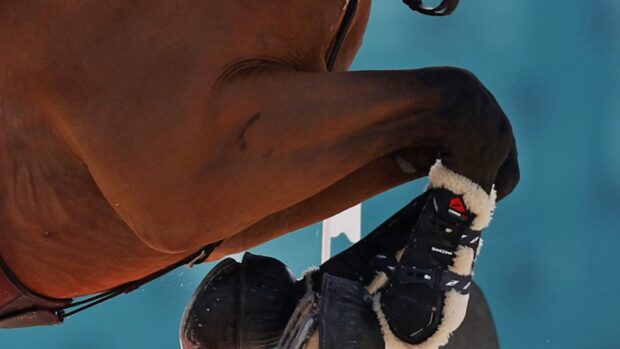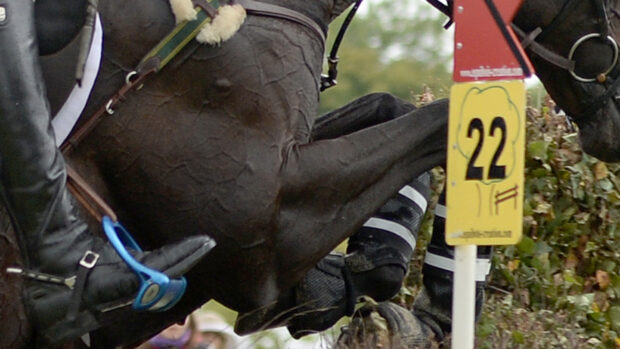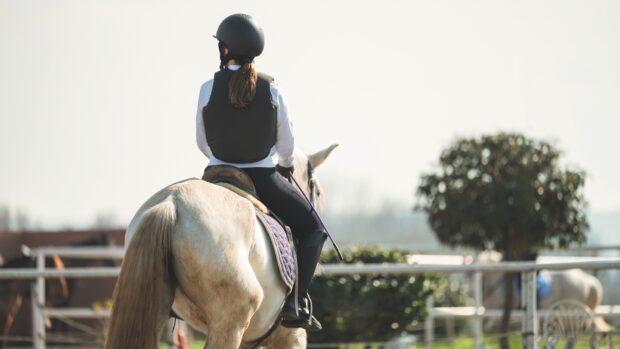THE fact nearly three-quarters of equestrians feel welfare in sport needs to be improved is an opportunity for both horses and the future of sport involving them.
That is the view of experts in response to the results of a major survey, of thousands of people within and outside the industry.
The statistics came from research carried out by the independent Equine Ethics and Wellbeing Commission, set up in June to “focus on ways the FEI equestrian community can strengthen its social licence to operate in light of growing public concern related to the welfare and wellbeing of horses in sport”.
Surveys were completed by 27,710 “equestrian enthusiasts”, including riders, grooms, vets and officials, in 116 countries, and 14,273 members of the public, across 14 countries. Results were presented at the FEI general assembly (9–13 November).
In the equestrian survey, 78% of people agreed with the statement, “I believe welfare standards need improving”. Another 16% believed “welfare standards are high” and 6% felt it “impossible to provide adequate welfare protection”. In the public survey, 52% said welfare standards need to improve, 33% feel standards are high and 15% believe it impossible to provide adequate protection.
“The point we were probably most surprised by was that the equestrians seemed more concerned than the public,” commission chair Natalie Waran told H&H. “I reflected on that, as I thought these are people within the camp, and we feel that if they know there are problems, that’s better than not knowing; if they were in denial, it would be a harder task to get them to face up to the fact there are things that need to be better.
“I think this is a big opportunity and shows the time is right. There will be people who don’t really want to change but generally speaking, equestrians recognise that it’s time to do something.”
The survey asked how much people thought horses enjoy being involved in sport. In the equestrian survey, 5% answered “always” and 5% “not at all”, and the rest were almost even between “frequently” and “sometimes”. Of the public, 9% answered “always”, 24% “frequently”, 47% “sometimes” and 20% “never”.
Dr Waran said the equestrians’ views on this were concerning and shows a need for people to understand better how to assess horses’ happiness, and how to enhance their experiences so they have a positive life rather than just one without negatives.
One of the concerns that emerged was on what happens to horses in the “other 23 hours”, when they are not competing or being trained.
“People were concerned or didn’t know enough,” Dr Waran said. “The approach we’re taking is to think if that’s the big concern, we want to do something about it, and how do we address it, in terms of more evidence or education, or communication.”
At the general assembly, Dr Waran provided an initial structure of an equine ethics and wellbeing strategy to address horse sport’s social licence, based on six key areas: evidence, to improve credibility by being research-led; education, to ensure good welfare; engagement, effective regulation, enforcement and empowerment, “promoting a culture of personal responsibility for equine welfare and wellbeing”.
World Horse Welfare CEO Roly Owers told H&H that this survey, of so many people and countries, is a “watershed moment”.
“We need to be careful not to draw too many conclusions from one set of figures but this is an opportunity, for sure,” he said. “It’s often a defence of the equine sector that the public doesn’t know what we do, but now we have some insight. Yes, the public is concerned but now we know the equestrian world is too, so that’s very much an opportunity to start the conversation.
“I know the commission wants to produce a priority list; this data is interesting but what does it mean, and what will be done about it? That’s a really exciting opportunity.
“It will be for some a real step change, in how they manage and train horses, but I think the FEI should be applauded for establishing this commission, and there’s been real engagement with it.”
The commission will keep working on the figures, and recommendations will be discussed at next year’s FEI sports forum.
“Today’s session is part of a process,” said FEI president Ingmar de Vos. “There is more that can be done, and more that must be done when it comes to protecting the welfare of the horse.
“We need to reconfirm and strengthen the position of equestrian sport in modern society. And to do this, we need to have the courage to look in the mirror and accept not only what we see, but also what the general public sees, unbiased without any filters.”
You might also be interested in:

‘If we don’t change, others will change things for us’: chilling warning to horse sport

*Opinion* Scaremongering clickbait, or a very real threat to the sport we all love?

Carl Hester: ‘We must step out of our bubble and see how dressage looks from outside’

Subscribe to Horse & Hound magazine today – and enjoy unlimited website access all year round
Horse & Hound magazine, out every Thursday, is packed with all the latest news and reports, as well as interviews, specials, nostalgia, vet and training advice. Find how you can enjoy the magazine delivered to your door every week, plus options to upgrade your subscription to access our online service that brings you breaking news and reports as well as other benefits.



